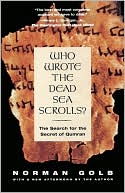
Avoid Flu Shots With the One Vitamin that Will Stop Flu in Its Tracks
Another influenza season is beginning, and the U.S. Center for Disease
Control and Prevention (CDC) will strongly urge Americans to get a flu shot.
In fact, the CDC mounts a well-orchestrated campaign each season to generate
interest and demand for flu shots.
But a recent study published in the October issue of the Archives of
Pediatric & Adolescent Medicine found that vaccinating young children
against the flu appeared to have no impact on flu-related hospitalizations
or doctor visits during two recent flu seasons.
At first glance, the data did suggest that children between the ages of 6
months and 5 years derived some protection from vaccination in these years.
But after adjusting for potentially relevant variables, the researchers
concluded that "significant influenza vaccine effectiveness could not be
demonstrated for any season, age, or setting" examined.
Additionally, a Group Health study found that flu shots do not protect
elderly people against developing pneumonia -- the primary cause of death
resulting as a complication of the flu. Others have questioned whether there
is any mortality benefit with influenza vaccination. Vaccination coverage
among the elderly increased from 15 percent in 1980 to 65 percent now, but
there has been no decrease in deaths from influenza or pneumonia.
There is some evidence that flu shots cause Alzheimer's disease, most likely
as a result of combining mercury with aluminum and formaldehyde. Mercury in
vaccines has also been implicated as a cause of autism.
Three other serious adverse reactions to the flu vaccine are joint
inflammation and arthritis, anaphylactic shock (and other life-threatening
allergic reactions), and Guillain-Barré syndrome, a paralytic autoimmune
disease.
One credible hypothesis that explains the seasonal nature of flu is that
influenza is a vitamin D deficiency disease.
Vitamin D levels in your blood fall to their lowest point during flu
seasons. Unable to be protected by the body's own antibiotics (antimicrobial
peptides) that are released by vitamin D, a person with a low vitamin D
blood level is more vulnerable to contracting colds, influenza, and other
respiratory infections.
Studies show that children with rickets, a vitamin D-deficient skeletal
disorder, suffer from frequent respiratory infections, and children exposed
to sunlight are less likely to get a cold. The increased number of deaths
that occur in winter, largely from pneumonia and cardiovascular diseases,
are most likely due to vitamin D deficiency.
Unfortunately, now, for the first time, flu vaccination is also being pushed
for virtually all children -- not just those under 5.
This is a huge change. Previously, flu vaccine was recommended only for
youngsters under 5, who can become dangerously ill from influenza. This
year, the government is recommending that children from age 6 months to 18
years be vaccinated, expanding inoculations to 30 million more school-age
children.
The government argues that while older children seldom get as sick as the
younger ones, it's a bigger population that catches flu at higher rates, so
the change should cut missed school, and parents' missed work when they
catch the illness from their children.
Of course, this policy ignores the fact that a systematic review of 51
studies involving 260,000 children age 6 to 23 months found no evidence that
the flu vaccine is any more effective than a placebo.
Sources:
a.. LewRockwell.com October 3, 2008
a.. EMS Responder September 9, 2008
a.. WebMD October 6, 2008
a.. Archives of Pediatric and Adolescent Medicine October 2008;
162(10):943-51
Dr. Mercola's Comments:
Back in 2005, The Federal Advisory Committee on Immunization Practices
(ACIP) recommended that all children between 6 months and 5 years old
receive flu shots each year. Now they have expanded their guidelines to
include children up to 18 years, which means everyone except those between
the ages of 19-49, who are in good health, are urged to get a flu shot.
It should come as no surprise to find out that a majority of the ACIP
members who came up with these guidelines have financial ties to the vaccine
industry, and stand to gain personally for every additional person getting a
yearly injection. It's actually the only explanation that makes any sense
for recommendations as insane as these.
Three Reasons to Reconsider Flu Shots
There are three major reasons why this government push to vaccinate 84
percent of the U.S. population with a yearly flu vaccine is so
incomprehensible:
1. The majority of flu shots contain 25 micrograms of mercury; an
amount considered unsafe for anyone weighing less than 550 pounds! And which
groups are most sensitive to the neurological damage that has been
associated with mercury? Infants, children, and the elderly.
2. No studies have conclusively proven that flu shots prevent
flu-related deaths among the elderly, yet this is one of the key groups to
which they're pushed.
3. If you get a flu shot, you can still get the flu (or flu-like
symptoms). This is because it only protects against certain strains, and it's
anyone's guess which flu viruses will be in your area.
So why would you take a flu shot - EVERY YEAR -- that has NEVER been
proven to be effective, that can give you the very illness you're trying to
prevent, and has potential long-term side effects that are far worse than
the flu itself?
The powers that be have done an excellent job of instilling fear into
the population so they believe that they must get a shot to stay healthy,
but the simple reality is it's doing you more harm than good.
And, even if the flu vaccine could effectively prevent the flu, there
have been several examples in past years where government health officials
have chosen the incorrect influenza strains for that year's vaccine. In
2004, the National Vaccine Information Center described how CDC officials
told everyone to line up for a flu shot that didn't even contain the
influenza strain causing most of the flu that year.
Two-Thirds of This Year's Flu Vaccines Contain a Full-Dose of Mercury
According to Dr. Donald Miller, MD, two-thirds of this year's flu
vaccines contain 25 micrograms of thimerosal. Thimerosal is 49 percent
mercury by weight.
Each dose of these flu vaccines contains more than 250 times the
Environmental Protection Agency's safety limit for mercury.
By now, most people are well aware that children and fetuses are most
at risk of damage from this neurotoxin, as their brains are still
developing. Yet the CDC still recommends that children over 6 months, and
pregnant women, receive the flu vaccine each year.
In addition to mercury, flu vaccines also contain other toxic or
hazardous ingredients like:
a.. Formaldehyde -- a known cancer-causing agent
b.. Aluminum -- a neurotoxin that has been linked to Alzheimer's
disease
c.. Triton X-100 -- a detergent
d.. Phenol (carbolic acid)
e.. Ethylene glycol (antifreeze)
f.. Various antibiotics: neomycin, streptomycin, gentamicin - which
can cause allergic reactions in some people
The Evidence Against Flu Vaccines
For those of you who are still unconvinced, know that there's plenty
of scientific evidence available to back up the recommendation to avoid flu
vaccines - if nothing else, then for the simple reason that they don't work,
and don't offer any real benefit to offset their inherent health risks. For
example:
a.. A brand new study published in the October issue of the Archives
of Pediatric & Adolescent Medicine found that vaccinating young children
against the flu had no impact on flu-related hospitalizations or doctor
visits during two recent flu seasons. The researchers concluded that
"significant influenza vaccine effectiveness could not be demonstrated for
any season, age, or setting" examined.
b.. A study published in the Lancet just two months ago found that
influenza vaccination was NOT associated with a reduced risk of pneumonia in
older people. This supports a study done five years ago, published in The
New England Journal of Medicine.
c.. Research published in the American Journal of Respiratory and
Critical Care Medicine last month also confirms that there has been no
decrease in deaths from influenza and pneumonia, despite the fact that
vaccination coverage among the elderly has increased from 15 percent in 1980
to 65 percent now.
d.. Last year, researchers with the National Institute of Allergy
and Infectious Diseases, and the National Institutes of Health published
this conclusion in the Lancet Infectious Diseases: "We conclude that frailty
selection bias and use of non-specific endpoints such as all-cause mortality
have led cohort studies to greatly exaggerate vaccine benefits."
e.. A large-scale, systematic review of 51 studies, published in the
Cochrane Database of Systematic Reviews in 2006, found no evidence that the
flu vaccine is any more effective than a placebo in children. The studies
involved 260,000 children, age 6 to 23 months.
Might Influenza be Little More Than a Symptom of Vitamin D Deficiency?
Vitamin D, "the sunshine vitamin," may very well be one of the most
beneficial vitamins there is for disease prevention. Unfortunately it's also
one of the vitamins that a vast majority of people across the world are
deficient in due to lack of regular exposure to sunshine.
Published in the journal Epidemiology and Infection in 2006, the
hypothesis presented by Dr. John Cannell and colleagues in the paper
Epidemic Influenza and Vitamin D actually makes a lot of sense.
They raise the possibility that influenza is a symptom of vitamin D
deficiency!
The vitamin D formed when your skin is exposed to sunlight regulates
the expression of more than 2,000 genes throughout your body, including ones
that influence your immune system to attack and destroy bacteria and
viruses. Hence, being overwhelmed by the "flu bug" could signal that your
vitamin D levels are too low, allowing the flu virus to overtake your immune
system.
How to Prepare For Flu Season Without Getting a Flu Shot
I often find that some of the simplest explanations are the truest,
and this sounds about as simple as it gets. And, getting appropriate amounts
of sunshine (or taking a vitamin D supplement when you can't get healthy
amounts of sun exposure) is one of my KEY preventive strategies against the
cold and flu, as it has such a strengthening effect on your immune system.
Interestingly, last week the American Academy of Pediatrics doubled
its recommended dose of vitamin D. Unfortunately this is still a woefully
inadequate recommendation as the dose should be TEN times larger. Rather
than going from 200 to 400 units per day, it should have increased to about
2,000 units per day.
For most of you reading this it is "vitamin D winter," which means
there simply isn't enough sunshine to make significant amounts of vitamin D,
so you will need to use a tanning bed or take oral supplements.
Although supplements are clearly inferior to sunlight or safe tanning
beds, I am becoming more convinced of the value of vitamin D supplements as
they are less potentially toxic than my initial impression, and they are
certainly more convenient and less expensive than a tanning bed.
For those in the winter with no or very limited exposure to sunshine,
4,000-5,000 units per day would seem appropriate for most adults. If you are
very heavy you may need to double that dose, and for children the dose can
be half that.
The key though is to make sure you monitor your vitamin D levels by
blood testing, to make sure your levels are therapeutic and not toxic.
I advocate getting your vitamin D levels tested regularly, but as I
reported recently, you now need to beware of where you're getting your test
done. For an in-depth explanation of what you MUST know before you get
tested, please read my updated article Test Values and Treatment for Vitamin
D Deficiency.
You can also use vitamin D therapeutically to TREAT the flu. But
please understand that if you are taking the above doses of vitamin D the
odds of you getting the flu are VERY remote. The dose of vitamin D you can
use would be 2,000 units per kilogram of body weight (one pound is 0.45 kg).
The dose would be taken once a day for three days.
This could be a very large dose if you were very heavy (2-300,000
units per day) This is the dose that Dr. John Cannell, founder of the
Vitamin D Council, has been using very successfully for a number of years.
I have not received a flu shot nor had the flu in over 20 years. Here
are the other "secrets" I use to keep the flu (and other illnesses) at bay:
a.. Eat right for your nutritional type, including avoiding sugar
b.. Eliminate sugar from your diet
c.. Eat garlic regularly
d.. Consume a high-quality krill oil daily
e.. Exercise
f.. Get adequate sleep
g.. Address emotional stress
h.. Wash your hands regularly (but not excessively)
Another useful supplement you could try, should you come down with a
case of the flu, is olive leaf extract, which you can find in most any
health food store.
Olive leaf extract has been found to be a potent broad-spectrum
antiviral agent, active against all viruses tested, including numerous
strains of influenza and para-influenza viruses.
















































